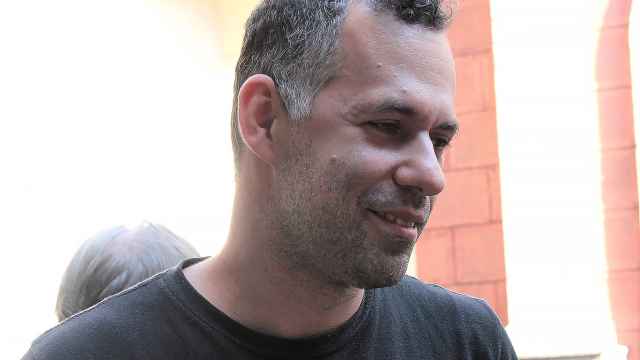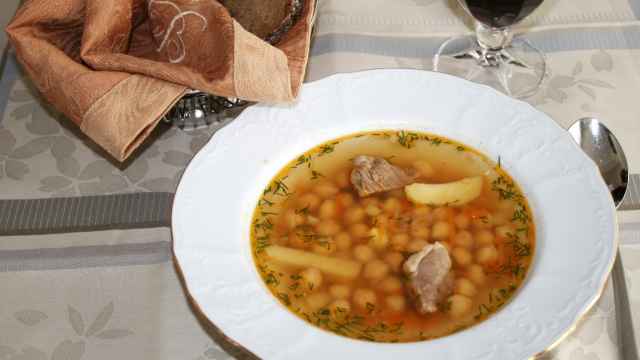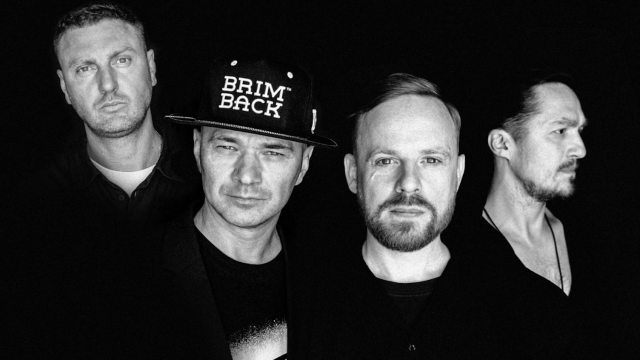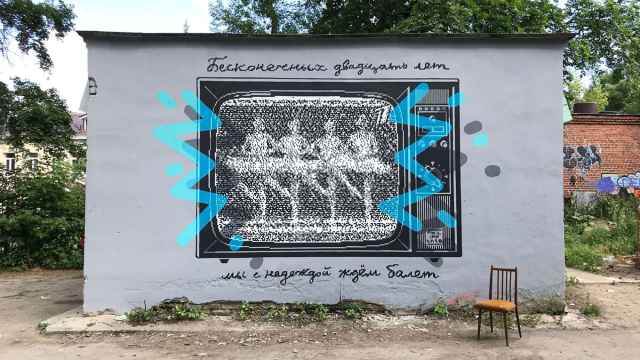Simplicity will be the watchword for Russia's fashionistas next season, driven by designers' narrowing budgets and a lack of good fabric in the country.
At Russia's Fashion Week, which gathered together Moscow's wealthy elite, designers complained about the lack of financing for an industry that has been squeezed by a flood of clothes from the West.
Bright pink and yellow '80s-style checkered and polka-dotted linen suits opened Fashion Week on Friday in the spring-summer collection of Slava Zaitsev, a 73-year-old Soviet captain of couture, who often dresses the wives of Russian leaders.
"Where is Russian fashion going this season? It's getting closer to the people. I made a simple collection, with linen being its central theme," Zaitsev said. "Russia is a country of linen."
Fabric is "a big problem in Russia now, most material, such as silk and wool, comes from Italy," he said.
Dressmakers are also disappearing in Russia because of the domination of Western fashion and a faltering economy, Zaitsev said. He said his fashion house was suffering from declining sales and that many of his peers had closed down.
Expecting consumers to spend less on clothes, Zaitsev emphasized accessories, including colorful jewelry, umbrellas and hats.
Alexander Shumov, producer of Fashion Week, said he had tried to use the event to introduce new young talent. The collections of 50 new designers would be shown during the week, he said.
But experts say the industry's own efforts are not enough and that the government should do more to help.
"The government prefers to raise money from import and export duties rather that by developing domestic production," said Tatyana Mikhalkova, president of the Russian Silhouette fund that supports young designers.
Russian fashion has begun to make baby steps toward developing its own style, given some space after Western brands more or less satisfied their expansion thirst into the luxury market.
"More foreigners were coming earlier because they all wanted to open shops in Russia. Now they've opened everywhere they wanted, and they don't need to spend money to come here anymore," Zaitsev said.
Now it is time for Russian fashion to find its business feet and stop being just art, he added.
Theater and movie actress Olga Kabo, who owns several dresses by Zaitsev, said Russian fashion needed promotion.
"The Russian fashion week is not yet at the level of the Paris or Berlin fashion weeks, the same way Russian films are not at the Oscar level … because we are still growing," said Kabo, who attends local and foreign fashion weeks. "We have the skill but haven't learned how to talk about it abroad yet."
A Message from The Moscow Times:
Dear readers,
We are facing unprecedented challenges. Russia's Prosecutor General's Office has designated The Moscow Times as an "undesirable" organization, criminalizing our work and putting our staff at risk of prosecution. This follows our earlier unjust labeling as a "foreign agent."
These actions are direct attempts to silence independent journalism in Russia. The authorities claim our work "discredits the decisions of the Russian leadership." We see things differently: we strive to provide accurate, unbiased reporting on Russia.
We, the journalists of The Moscow Times, refuse to be silenced. But to continue our work, we need your help.
Your support, no matter how small, makes a world of difference. If you can, please support us monthly starting from just $2. It's quick to set up, and every contribution makes a significant impact.
By supporting The Moscow Times, you're defending open, independent journalism in the face of repression. Thank you for standing with us.
Remind me later.





